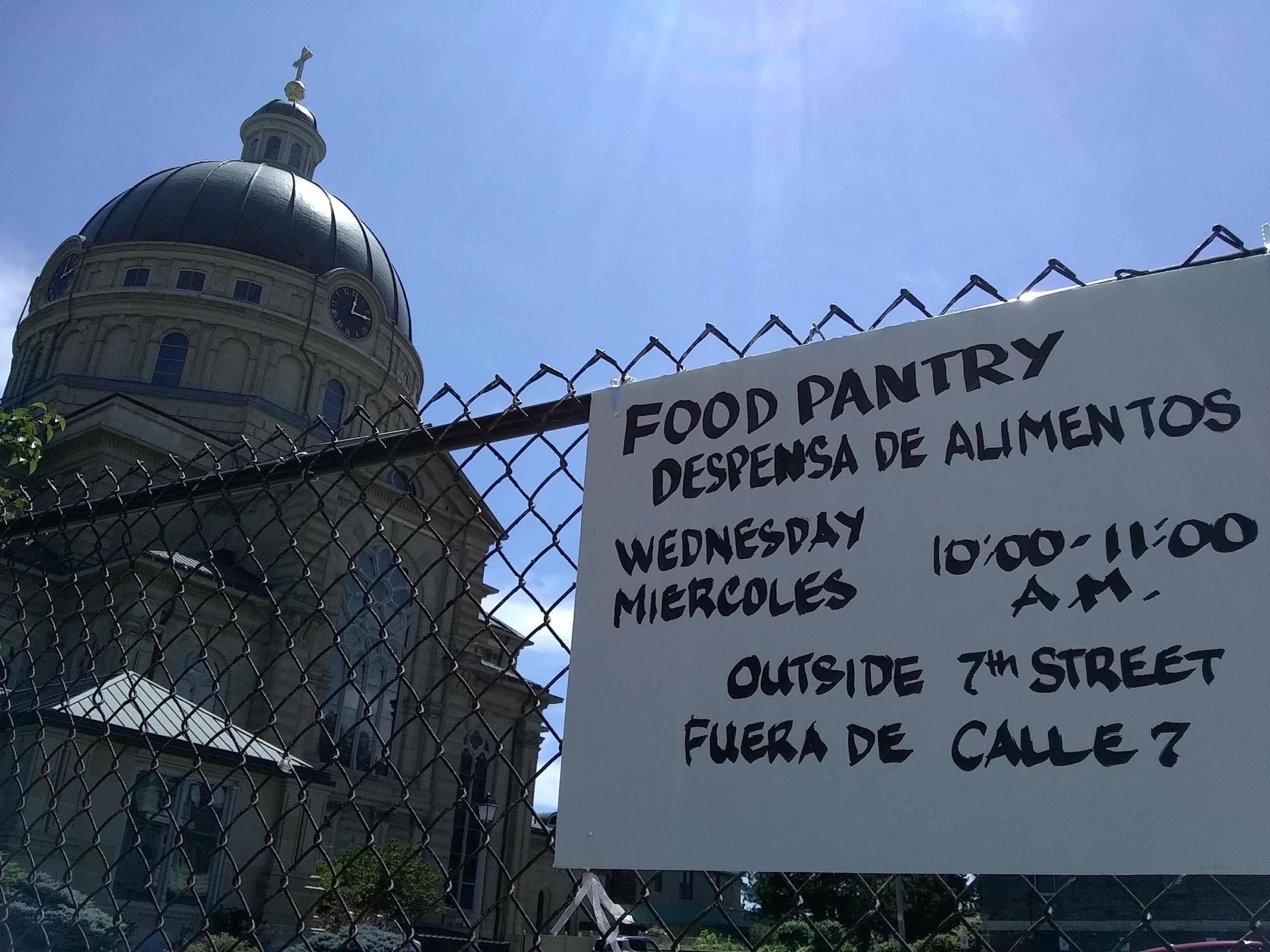
The Basilica of St. Josaphat has served as a community hub for partner organizations throughout the COVID-19 pandemic. (Submitted photo)
The mission of the St. Josaphat Basilica Foundation is to “preserve, restore and enhance” the iconic Basilica in Milwaukee’s Lincoln Village. To Executive Director Colleen Cheney-Trawinski, that means making sure it stands for generations to come to serve parishioners and Lincoln Village residents.
“Our faith is to reach out and serve others,” she said. “I always think enhancing means not just the physical building but enhancing the Basilica’s impact on the livelihood of its people in the community.”
The Basilica sits at a unique intersection of cultural, religious and social significance, located in a high-density urban area, boasting strong relationships with community groups and social services, and enjoying frequent contact with people who need access to these resources.
And since COVID-19 has created an unprecedented need for large, safe spaces where the public can interface with organizations that provide financial, social, nutritional and any number of other types of support, the Basilica has tried to step into the void.
“It happened organically — it wasn’t a conscious decision,” said Cheney-Trawinski. Community groups like the Hunger Task Force, on the lookout for a reliable and spacious outdoor venue for one of their summer meal program sites, reached out to inquire if the Basilica’s parking lot was available. It got us thinking about what we had to offer.”
Since COVID-19, the Basilica has been the site of a drive-through voter registration event on July 19 and a drive-through job fair in August. It is also utilized by the Lincoln Village Business Association for its meetings, as it provided a space large enough for social distancing.
As a development assistant at Hunger Task Force, Ashley Kluck manages all summer meal programs at all distribution points throughout the city. In past years, Hunger Task Force always served their Lincoln Village families at a nearby park. But safety had become a concern, as the park drew a larger population of individuals under the influence of drugs or alcohol. Once social distancing became imperative to their operation, said Kluck, they knew the park was no longer a viable option.
“In past years, we wouldn’t think twice about a line that was 50 people long, but this year, obviously, we had to put in safety measures,” she said. “We didn’t want to leave the families who live in that neighborhood stranded. We explored different options for a safer place. Obviously, the Basilica is a huge staple in that community. Everyone knows where it is. It’s historical, it’s beautiful, it’s a safe place for families to go. The day that I reached out to Colleen, she’s like, ‘I love all of this; this is a great idea.’”
Patricia Obluck, associate organizer with Common Ground, the entity that organized the drive-through voter registration, said that the Basilica is uniquely situated to maximize access to the community. Their existing outreach efforts were perfectly in step with Common Ground’s mission to “work with the everyday people of the community and empower them to create meaningful changes in our city.”
The drive-through voting event was meant to help prevent the low voter turnout Milwaukee saw in the 2016 election, as well as to help dispel misinformation or confusion that can surround registering to vote.
Voter disenfranchisement, said Obluck, is worse in communities like Lincoln Village. “It disproportionately affects people of color,” she said. “That area is pretty low-income, with a high population of families speaking Spanish. They might come from other political systems and might not know the Wisconsin political system.”
Their goal with the registration event “was twofold — get people registered and to meet members of our community around our institutions,” said Obluck.
As soon as Common Ground decided to hold the event, Obluck said she reached out to Cheney-Trawinski. “Colleen is very open and available to the community. When you talk to her, you can tell, she wants the Basilica to be the place where people in the neighborhood know they can go if they need help.”
Cheney-Trawinski said there are other partnerships in the works for the Basilica, and they are always open to working with new organizations.
“We’re a network, and we’re there for each other, and we’re there for the people in our community,” said Cheney-Trawinski. “We put that in our marketing — beacon of hope, hub of the community. Those words sound great, but you have to be there with the actions. In particular, over the last two years, it has been a conscious decision to be there in action.”
